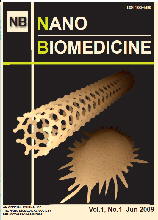Synopsis
Bone marrow cells from the rat femur, which contain mesenchymal stem cells (MSCs), have frequently been used for bone and tooth regeneration both
in vivo and
in vitro. However, since a low number of MSCs are present in dental pulp cells (DPCs), hard tissue regeneration
in vitro requires a long period of time. Therefore, bioactive substances are needed to promote the proliferation and differentiation of these cells. DPCs from rats (rDPCs) treated with a subcutaneous injection of an immunosuppressant formed significantly more mineralized nodule aggregates in subcultures with dexamethasone (Dex). The effects of vitamin B
12 (VB
12) on the formation of mineralized nodules in subcultures of rDPCs have also been investigated. VB
12 was confirmed to be effective for the pro-liferation and differentiation of MSCs in a subculture with Dex. Therefore, we herein investigated the effects of VB
12 on MSC proliferation, differentiation, and osteogenesis in DPCs from immuno-suppressant-injected rats. VB
12 effectively enhanced the formation of mineralized nodule aggre-gates in a subculture of rDPCs.
Key words: mineralized nodules, dental pulp cells, dexamethasone, immunosuppressant, vitamin B
12
Full text PDF
DOI: 10.11344/nano.16.79
Nakama H, Yoshikawa M, Ikenaga H, Tsuji N, Miyamoto A, Ushikubo M, Maeda H. Effects of vitamin B12 on mineralized nodule deposition by dental pulp cells from immunosuppressant-treated rats. Nano Biomed 2024; 16(2): 79-88.
